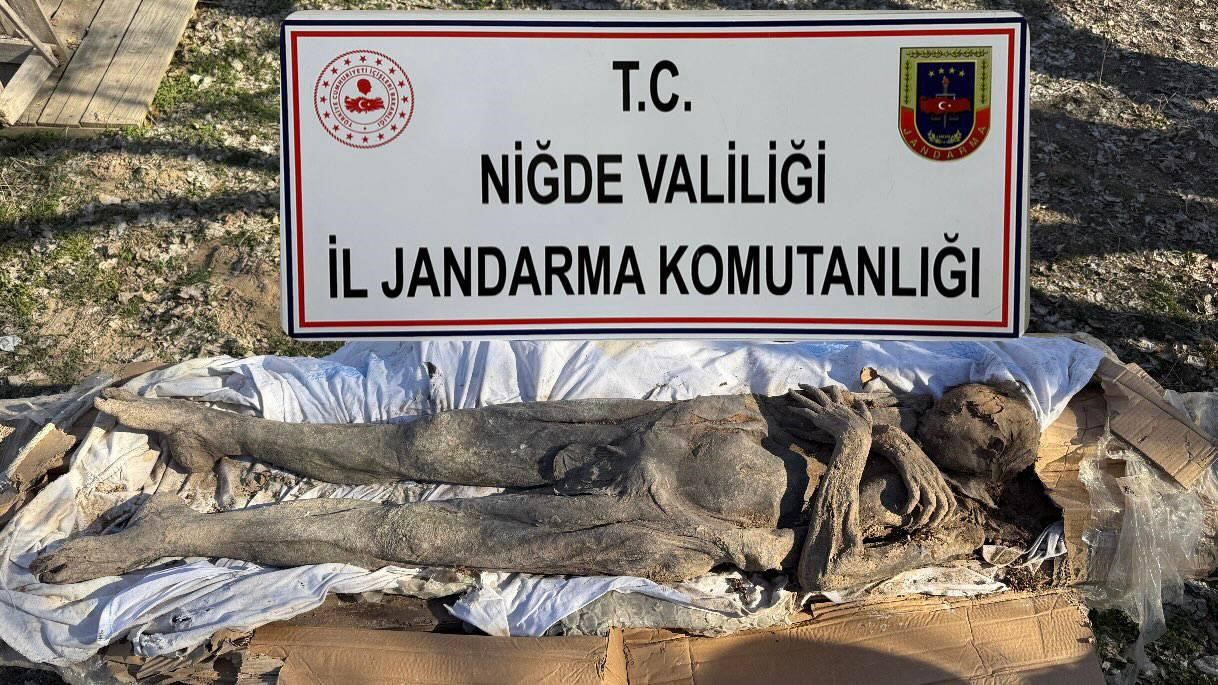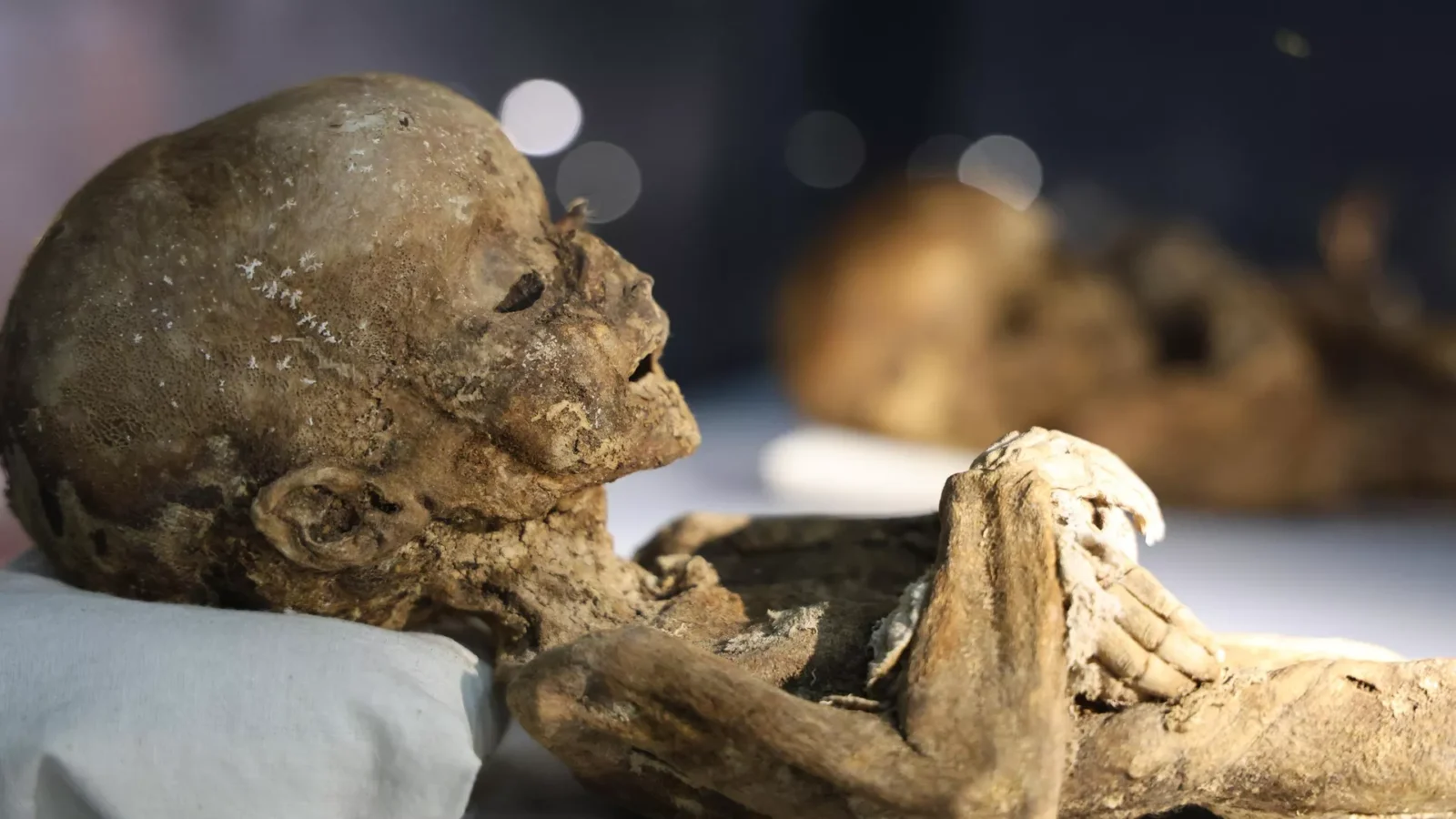
A group of seven individuals in Nigde, south-central Türkiye, has been arrested for attempting to sell a mummy, which authorities believe dates back to the Middle Ages and belonged to a Christian male.
The suspects, including a student, a hairdresser, an auto electrician, a car dealer, a farmer, and a shopkeeper, had reportedly hidden the medieval mummy for a year before trying to sell it for $1 million.
According to the investigation, three of the suspects, Ruhi Gokmen, Mehmet Azak, and Ismail Erin, discovered the mummy about a year ago while digging in a field near Kalay Gol in Kemerhisar. The mummy was buried approximately 1.5 meters (4.92 feet) to 2 meters underground, with its legs partially visible.
After unearthing it, the group transported the remains to an abandoned house owned by one suspect's grandfather in Tepe Mahallesi. The mummy was initially kept inside the house before being moved to a septic pit in the garden.
As more individuals joined in, the group started searching for potential buyers. One suspect, Hakan Gok, admitted to moving the mummy in his vehicle after being contacted by Gokmen, who said, "Let's take the mummy to your place for a few days." The remains of the medieval mummy were then locked inside the house, awaiting a sale.
Authorities were alerted when the group began looking for buyers. To catch the suspects, the Nigde Provincial Gendarmerie Command devised a plan.
The seven suspects—Kaan Akdogan, Ruhi Gokmen, Mehmet Azak, Hakan Gok, Haci Oguz, Sahin Karatas, and Ismail Erin—were taken into custody.
After their initial interrogation at the Kemerhisar Gendarmerie Station, they were transferred to court and subsequently detained.

Following the arrests, the Nigde Governor's Office released a statement confirming that the medieval mummy was seized in a house belonging to one of the suspects. The statement described the remains as "believed to belong to a Christian male from the Middle Ages."
Officials from the Ministry of Culture and Tourism have since launched an archaeological investigation at the site where the mummy was originally found. The area is now under strict surveillance, and authorities are assessing whether additional artifacts might be present.
The governor's office emphasized Türkiye's commitment to protecting its cultural heritage.
Our country is determined to safeguard its historical artifacts. The gendarmerie's swift action prevented the illegal sale of a valuable historical object.

This incident brings attention to a long history of mummy smuggling, particularly in Europe. In the 15th and 16th centuries, European nobility viewed ancient artifacts as status symbols.
As a result, diplomats, merchants, and collectors sought to acquire antiquities from regions under Ottoman rule, including Egypt, Mesopotamia, and Anatolia.
During the 18th century, the interest in mummies intensified, with European aristocrats eager to add them to their private collections.

While six of the arrested suspects remained silent during interrogations, one provided details about their intentions with the medieval mummy.
Ismail Erin, one of the suspects who is a hairdresser, stated that financial difficulties led him to participate in the attempted sale. "I got involved because I have an autistic child and debts. I needed a way to breathe financially," he reportedly told investigators.

The case remains under investigation, with authorities examining whether the suspects had connections to larger smuggling networks.
Meanwhile, the Ministry of Culture and Tourism is analyzing the medieval mummy to determine its exact age and origin. Additional excavation efforts are planned in the Kalay Gol area to uncover any further historical artifacts.
Türkiye has stringent laws against historical artifact smuggling. Under the current legal framework, attempting to sell cultural heritage items can lead to severe penalties, including lengthy prison sentences.